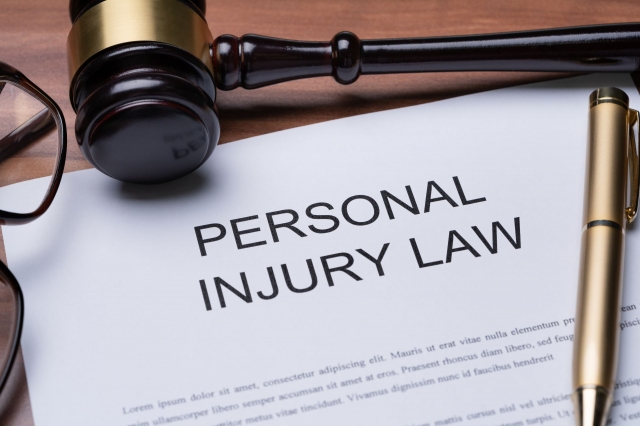If you have been harmed by someone's act or failure to act, you have suffered what lawyers call a personal injury. A personal injury involves any physical or psychological harm inflicted on one by another, either through negligence or malpractice. When you suffer a personal injury, it is essential to understand what you need to do to secure fair compensation.
You can improve your chances of securing fair compensation by hiring a personal injury lawyer. They can ensure that your rights are protected and you get what you deserve.
As a victim, you may have a lot of questions. A lawyer can clear up these questions. In this blog, we clear up some of the basic and common questions victims have. Read on.
What is the process of a personal injury claim?
A claim refers to an official complaint lodged by the aggrieved party against the offending party. First, your case will be investigated, and once they gather the evidence, your claim will be approved.
From here, your lawyer will take you through two crucial processes: negotiation and litigation. The negotiation approach is where the plaintiff and defendant negotiate a settlement and attempt to resolve the matter without involving the court. When negotiations fail, the case goes to court. This process is known as litigation.
On what grounds can I file a personal injury claim?
You can file a personal injury claim under these circumstances:
- Intentional Wrongs: If an individual or organization has intentionally caused a personal injury, you retain the right to file a personal injury claim. These instances include battery, assault, false imprisonment, intentional psychological distress, and more.
- Negligence: If an individual or organization has been negligent in their duty of care, you can file a personal injury claim. For instance, if a medical practice fails to provide appropriate treatment, it can be seen as negligence of their legal duty.
- Strict Liability: In the case of strict liability, the defendant may not have been negligent or intended to cause injury to the plaintiff. However, a service or product they offer has caused the injury. Therefore, they are liable to provide compensation to the injured party.
What is the worth of my case?
There are a few things to keep in mind when discussing the worth of your case; many factors go into deciding how much compensation you will receive. These are the factors that determine the worth of your case:
- The injury's impact on your life
- Medical costs to treat the injury
- Emotional pain and suffering
- Lost wages while recovering from the injury
- Rehabilitation costs, if needed
Once these factors are considered, your lawyer will pitch a compensation amount and begin negotiations.
When should I file a claim?
Legal procedures have a statute of limitations. It is essential to note this as you begin the process. Different states offer different statutes of limitations, so be informed of the law in your state. The best way to do this is to contact a lawyer soon after you are injured. After the statute of limitation has expired, it is impossible to file a claim. Only exceptional cases are allowed to seek compensation past the statute of limitations:
- If a minor has suffered a personal injury, the statute of limitations only goes into effect when they turn 18.
- If a medical malpractice caused a personal injury, the statute of limitation goes into effect when you discover the injury.
If you have filed a claim against a government entity, the statute of limitations might be shorter.
Will the case go to trial?
Most personal injury claims are settled before they reach the court. Nevertheless, sometimes, a trial might be the only way to receive fair compensation. These are the cases in which a trial may be needed:
- The defendant refuses to offer compensation
- The defendant provides unfair compensation
- The plaintiff wishes to take the case to court
- Both parties cannot settle; this results in a dispute.
Although it is rare for personal injury cases to go to trial, it is good to be prepared and understand the process.
Conclusion
Personal injuries can significantly hinder the quality of an individual's life. Staying informed about all the possible routes you can take while seeking compensation helps to ease this hindrance. Understanding the process can ensure you receive the fairest possible solution to the damages you have incurred, and you can move on with your life.






